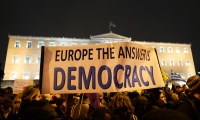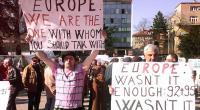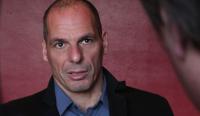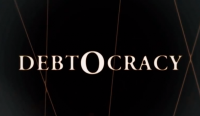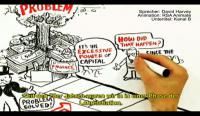The EU is in a deep crisis, the situation very worrying according to Srećko Horvat. But elites and governments in the EU are unwilling and incapable of responding to this crisis. The Left has also failed to provide people with alternatives. Right-wing movements have so far profited from the anger of workers and middle-class citizens. The pan European movement DiEM25 wants to fill the gap and develop proposals for solving the crisis in order to build bridges between political parties and progressive movements to create a different Europe beyond neoliberalism, mass unemployment and fortress Europe.
Srećko Horvat: co-founder of DiEM25, philosopher, activist und author from Croatia
The pan-European movement DiEM25, co-founded by Srećko Horvat and Yanis Varoufakis, former finance minister of Greece, wants to build bridges between political parties and progressive movements in Europe. Left parties like the Labour Party under Jeremy Corbyn and Podemos in Spain should not be losing touch with its progressive base to avoid what has happened with Syriza in Greece, says Horvat. Additionally, many problems could not be solved on an isolated national level. Therefore a left exit from the European project is the false answer according to Horvat. Most problems have transnational implications like the economic or financialcrisis, climate change or the refugee crisis. But the Left has so far failed to provide alternatives to the neoliberal assault on European societies. Right movements and parties have instead ceased the opportunity and are doing well. It is high time to build a “progressive, internationally oriented” Europe.
The failure of the progressive party Syriza clearly shows that major problems in the EU cannot be dealt with on a national level. Greece’s problem was not a national one but a problem of the Euro zone according to Horvat. These kinds of problems cannot be solved even by a radical left government. Furthermore the various crises in the EU are interconnected. The austerity policies especially in the Southern states of the EU exacerbate the economic crisis while at the same time attracting investments from China or Golf monarchies to fill the gap. These investments eventually lead to the further erosion of workers’ rights, social standards and solidarity with refugees. “The refugee crisis is connected to the economic crisis, by the fact that left-wing political parties are doing the opposite of what they promised before they came to power. (...) The situation is really, really worrying, with a lot of contradictions which are all contradictions of capitalism.”
The collapse of Yugoslavia was not rooted in nationalism. Instead the eruption of nationalism was the consequence of the collapse of Yugoslavia, says Horvat. The self-management project in the Balkan country in the era of Tito was step by step integrated into the global market which led to its implosion. A series of neoliberal policies were imposed like the financialization of the economy and commercialization of state services. The results of different waves of privatization and buy-outs were deindustrialization, mass unemployment and the rise of right-wing chauvinism in the Balkans. While Yugoslavia was one of the leading auto makers in Europe, today there are no factories any more between Vienna and Athens. “The Yugoslav system functioned like the European Union with a center, Serbia-Croatia and a periphery with Kosovo and other regions. And the center also imposed austerity measures similar to what is happening today in the EU. The possible future collapse of the European Union might resemble the collapse of Yugoslavia in the 1990s.”
Even before the Occupy movements started in the U.S. or Spain in 2008 the Balkans witnessed a revival of direct democracy experiments. From Slovenia and Serbia to Macedonia and Bosnia grassroots protests, plena and resistance against government policies involved thousands of people. Even occupations of factories occured which led to the self-management of firms for example in Tuzla. In Belgrade people have resisted against the modernization of the port district where investors from the Arab Emirates want to build a “new Dubai” with two billion dollars. Protest movements have spread all over the place, says Horvat. This should be an inspiration for Europe and steer the continent away from its cynical course especially regarding refugees. The EU's walling-off refugees would be hypocritical. “It’s like putting a hand in front of our eyes and not looking at what Europe did with the war in Libya, with the French intervention for instance, with the war in Syria.”

